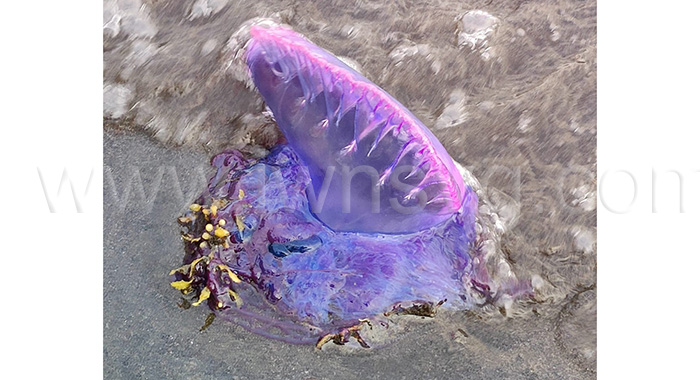A Calder family is urging sea bathers to be on the lookout for Portuguese men o’ war after finding two of the venomous sea creatures in the man-made pool at the Rawacou Recreation Park on Friday.
The Portuguese man o’ war belongs to a group of animals that are closely related to jellyfish.
They deliver a painful sting powerful enough to kill fish. While the sting is rarely deadly to people, it packs a painful punch and causes welts on exposed skin.
The family told iWitness News that their son discovered the men o’ war when they went to the area for a swim after 4 p.m. Friday.
“We took the sea creatures out of the pond using two long stones and placed them in a hole close by to prevent others from getting stung and notified two workers at the entrance as we left not too long after encountering the Portuguese men o’ war. We left as they normally move in groups,” the family told iWitness News via WhatsApp.
The National Ocean Service of the U.S. National Oceanic and Atmospheric Administration says men o’ war are propelled by winds and ocean currents alone, and sometimes float in legions of 1,000 or more.
They resemble an 18th-century Portuguese warship under full sail.
The man o’ war is recognised by its balloon-like float, which may be blue, violet, or pink and rises up to six inches above the waterline.
Lurking below the float are long strands of tentacles and polyps that grow to an average of 10 meters (about 30 feet) and may extend by as much as 30 meters (about 100 feet).







I have seen them there before and not surprised as I do believe they love the colder waters and with recent temperatures here…